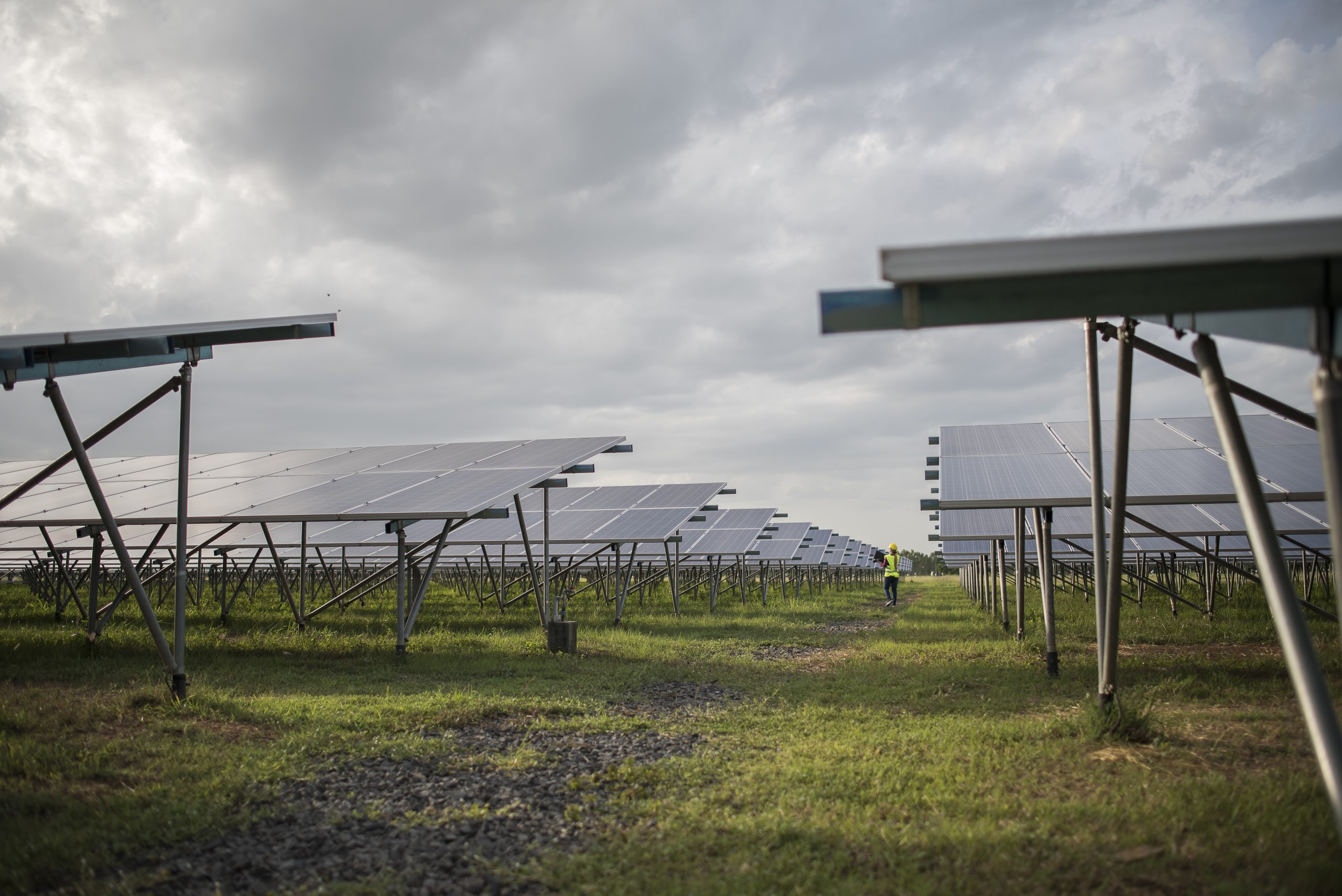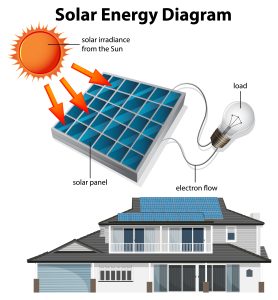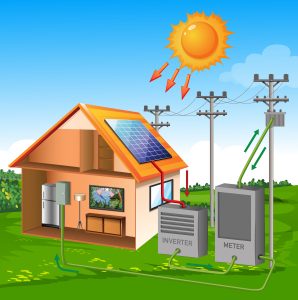
Grid-Tie vs. Off-Grid Solar Systems
- FazipayNews & UpdatesSolar
- September 14, 2023
- No Comment
- 18
Solar energy has emerged as a compelling alternative to conventional electricity sources. Harnessing the power of the sun not only reduces your carbon footprint but also offers significant cost savings in the long run. However, before diving into the world of solar energy, it’s essential to understand the fundamental choices: grid-tie and off-grid systems. In this blog, we’ll explore the key differences between grid-tie and off-grid solar systems to help you make an informed decision.
Grid-Tie Solar Systems:

Grid-tie solar systems, also known as grid-connected or on-grid systems, are designed to work in conjunction with the local utility grid. These systems use photovoltaic (PV) panels to generate electricity from sunlight. The generated electricity is then fed into the grid, and homeowners receive credits or compensation for the energy they produce, often through net metering programs.
Advantages of Grid-Tie Systems:
– Cost Savings: Grid-tie systems are typically more cost-effective upfront, as you don’t need to invest in expensive batteries for energy storage.
– Reliable Power Supply: Since you’re connected to the grid, you have a consistent power supply even when your solar panels aren’t producing electricity (e.g., at night or during cloudy days).
– Earn Credits:You can earn credits for excess energy production, reducing or even eliminating your electricity bills.
Disadvantages of Grid-Tie Systems:
– No Backup Power: Grid-tie systems do not provide backup power during grid outages. You rely entirely on the grid for electricity.
– Grid Dependency: You are subject to utility rate changes, and your savings depend on local net metering policies.
– Environmental Impact:The grid may still rely on fossil fuels, so the environmental benefits may not be as pronounced.
Off-Grid Solar Systems
:
Off-grid solar systems are entirely independent of the utility grid. They consist of PV panels, a battery bank, and an inverter to convert stored DC power into AC power for your home. Off-grid systems are commonly used in remote areas where grid access is limited or unreliable.
Advantages of Off-Grid Systems:
– Energy Independence:Off-grid systems provide complete energy independence. You’re not reliant on the grid, making them ideal for remote locations.
– Backup Power: Off-grid systems offer backup power during grid outages, ensuring uninterrupted electricity supply.
– Environmental Benefits: Off-grid systems are more environmentally friendly as they reduce reliance on fossil fuels and promote sustainability.
Disadvantages of Off-Grid Systems:
– Higher Initial Costs: Off-grid systems require expensive battery storage, making the initial investment higher.
– Maintenance: Batteries need periodic maintenance and replacement, adding to long-term costs.
– Limited Energy Production: Off-grid systems may not produce as much energy as needed during cloudy days or in regions with limited sunlight.
Which Option Is Right for You?
The choice between grid-tie and off-grid solar systems depends on your location, energy needs, budget, and environmental goals. If you live in a well-connected area and primarily want to reduce your energy bills while contributing to a greener planet, a grid-tie system may be the way to go. On the other hand, if you seek energy independence, backup power, and live in a remote area, an off-grid system might be the better choice.
In conclusion, both grid-tie and off-grid solar systems have their merits, and the decision should align with your unique circumstances and priorities. As solar technology continues to advance, hybrid systems that combine the best of both worlds are also becoming more accessible, offering even more flexibility and options for homeowners.


